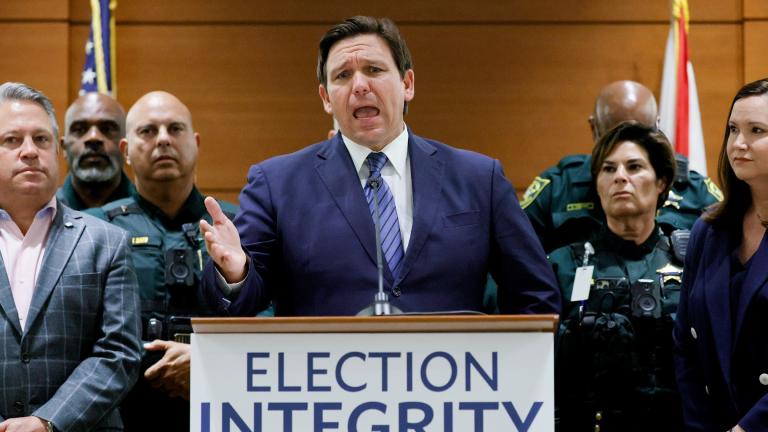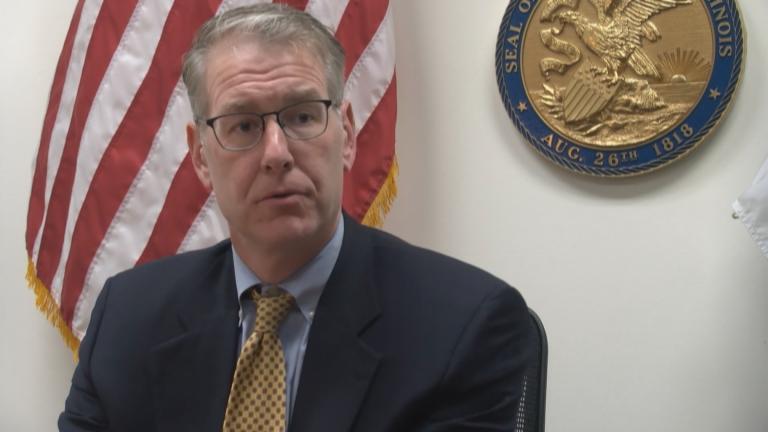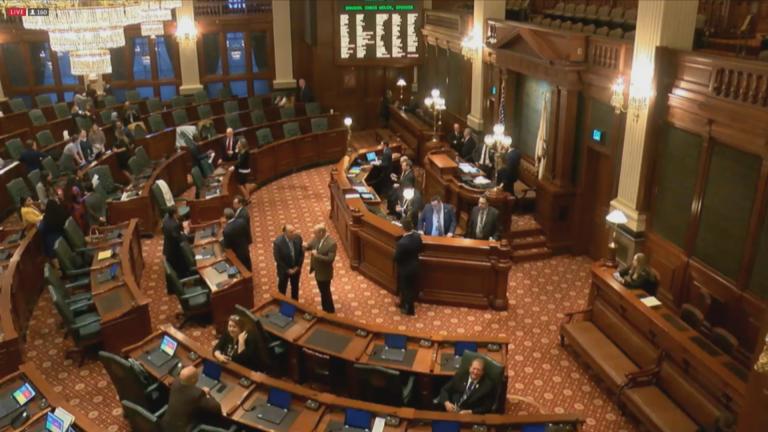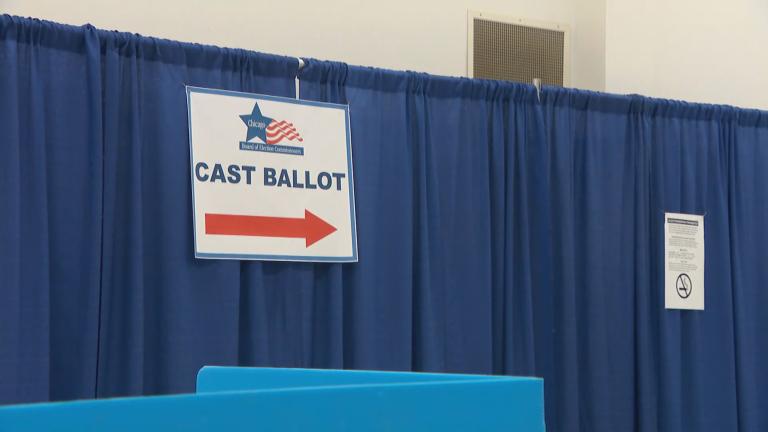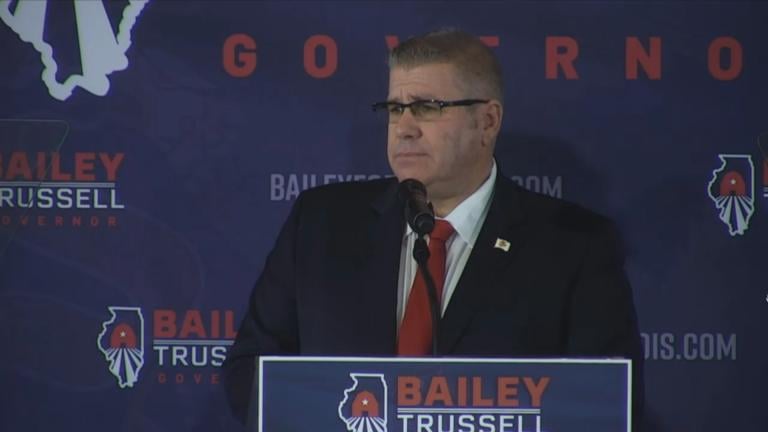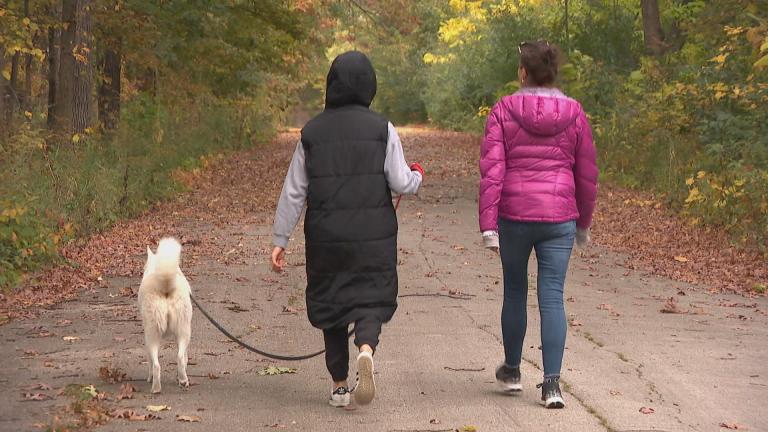Next Tuesday, Evanston voters won't only be deciding who to vote for in races for governor, Secretary of State and U.S. Senate, they'll also be deciding how they'll vote in the future as the northern suburb seeks to become the first community in Illinois to use ranked choice voting for future municipal elections.
Ranked choice voting calls for just that: Voters pick whoever they want to win. They also have the option to mark a second and third choice, through however many candidates are on the ballot.
If one candidate clears 50%, that candidate wins outright.
If not, the candidate with the least support gets dropped; those votes instead are allocated to the voters’ second choice candidate.
That process continues until a candidate receives a majority of the vote.
“And the outcome of all that is that the person who is eventually selected isn’t just the person who had the most votes in the first round. Maybe they had 30% of the vote in a five-way race but the other 70% of the community hates them. Instead, the person elected is somebody who a majority of the community feels most comfortable with,” Evanston Mayor Daniel Biss said.
When he was in the General Assembly, Biss actually sponsored legislation that would have implemented ranked choice voting in Illinois, but it didn't gain traction.
While Biss is the mayor, he's not speaking in that official capacity when it comes to ranked choice voting; per the city’s ethics code, he and Council Member Devon Reid shared their (contrary) points of view with WTTW News speaking from personal perspectives.
Biss said the change will help non-traditional and diverse candidates win office, and give those without deep-pockets and connections a chance.
“I feel like my whole life, I’m hearing from people — some voters and some non-voters — who say ‘I don’t know if I want to vote, I don’t like these two options but they’re the only two with a chance; I like this other one better but she doesn’t have a chance. Am I throwing away my vote if I vote for her?’” he said. “There are people who don’t feel well-represented in the current system and ranked choice voting is for them. Ranked choice voting is for everybody who has ever felt like ‘Do I have to vote strategically or do I have to vote my conscience?’”
Biss says ranked choice voting lets someone do both.
But Councilmember Reid, who is Black, said ranking choice voting will dilute the voice of voters of color, like those who make up the majority of his ward.
“I am deeply concerned that this will reduce the voice of minority voters,” Reid said. Evanston currently chooses its council members, mayor and city clerk in non-partisan elections. They're held what's known as "off-cycle," meaning on a different timeline than presidential and statewide races.
Reid says the non-partisan, off-cycle elections already make the contests “exclusive” with the highest voter turnout from affluent, white voters and senior voters.
“Our elections are already formulated in a way that tends to exclude minorities and people of color. I think layering on ranked choice voting will only disproportionally impact the Black and Brown community here in Evanston and dissuade more folks from coming out, or dilute what their say is,” Reid said.
Reid said ranked choice voting may make more sense on a larger scale, like for Congressional or Presidential contests, but he says how Evanston does it now works: in multi-candidate, non-partisan primaries, the top two vote-getters move on to a consolidated race.
He said that allows time and opportunity for candidates and voters to get to know each other.
“I can knock on every door in my community. When you’re running for governor, you’re running for president, you cannot get out and actually meet the voters and have conversations with them at their doors,” Reid said. “And so, it’s a very different level of engagement, that you have here on the local level. And so that’s why I think it really benefits us to have elections where it allows the time for folks to have two rounds, narrow it down.”
Reid also says ranked choice voting puts a bigger mental load on voters, weighted down by the paradox of choice and the need to evaluate then order candidates -- another form of potential disenfranchisement.
He also questions what moving to ranked choice voting will cost Evanston, and how it will be legally implemented.
Biss though, said the ranking method won't just change how voting happens, it could also change the tenor of politics because to prevail in a ranked choice environment, a candidate must not only win loyal backers, they also have to appeal to an opponents' support base as those voters’ second best option.
Biss said that will make campaigns, and politics by extension, less nasty, which he said is should be a priority given the polarization of American politics.
In a ranked choice scenario, he said, a candidate is “not going to attack the other candidate so much that somebody who likes them would never pick me as their second choice. And so I think not only will the campaigns be more positive and more constructive, but also that election system tends to pick elected officials who are better at working with others. Especially others that don’t always agree with them.”
If the question in Evanston passes next week, ranked choice voting would first be used in Evanston in the spring of 2025.
There's no organized opposition, but the group RCV for Evanston lists League of Women Voters Evanston, Indivisible Evanston, E-Town Sunrise, Reform for Illinois, Common Cause Illinois, the Libertarian Party of Illinois and the Democratic Party of Evanston as supporters.
National groups backing the ranked choice movement are pouring money into the effort.
The “Yes for Ranked Choice Voting in Evanston” ballot initiative committee’s had nearly $31,000 cash on hand per Reform for Illinois’ campaign contributions tracker. The bulk of the funding came from groups with national footprints, including FairVote Action with $20,000 in contributions, Unite America with $10,000 and Rank the Vote with $9,000.

